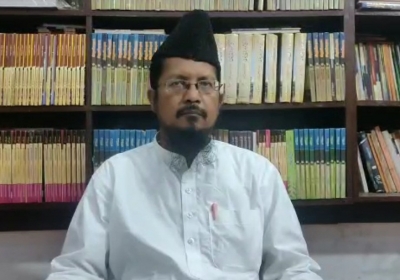Bareilly, August 15, 2024: Maulana Shahabuddin Razvi, president of All India Muslim Jamaat (AIMJ), has expressed dissatisfaction with Prime Minister Narendra Modi’s recent advocacy for the Uniform Civil Code (UCC) during his Independence Day speech from the Red Fort. Razvi stated that the Muslim community is not pleased with the Prime Minister’s remarks, arguing that the proposed UCC could disrupt societal harmony, reported The Times of India.
During his address, Prime Minister Modi emphasized the necessity of a Uniform Civil Code, referring to it as a long-overdue step towards realizing the dreams of the Constitution’s framers. He noted that the Supreme Court has repeatedly urged the government to address this issue, highlighting the communal and discriminatory nature of the current civil laws.
“The spirit of the Constitution and the call of our time demand that we discuss this crucial issue openly,” Modi said, urging contributions from all sections of society to form a consensus on the matter.
However, Razvi countered this view, asserting that the diversity of religious principles in India makes a unified civil code impractical. He warned that implementing the UCC could lead to societal fragmentation, disturbing the existing brotherhood among people of different faiths.
“The entire Muslim community of India is not satisfied with the words of PM Narendra Modi,” Razvi declared. He urged the Prime Minister to reconsider the move, suggesting that it could lead to unintended consequences for the nation’s social fabric.
The debate over the Uniform Civil Code, which aims to replace personal laws specific to various religions with a common set of laws for all citizens, continues to be a contentious issue in India. Personal laws currently govern matters such as marriage, divorce, inheritance, adoption, and maintenance within different religious communities. The government’s push for a UCC is seen by some as a necessary step towards secularism, while large segment of masses view it as a threat to religious freedom and social harmony.




